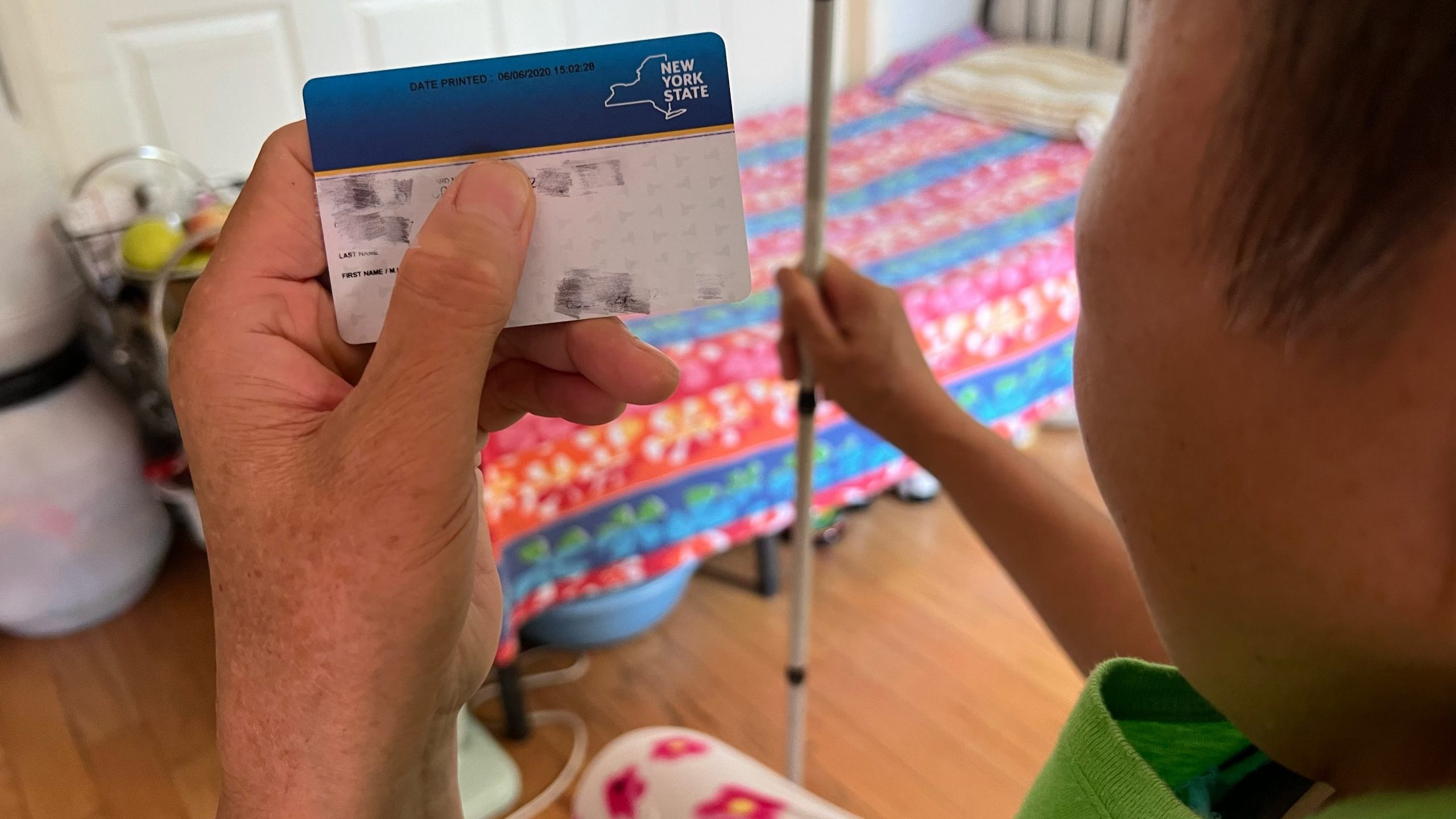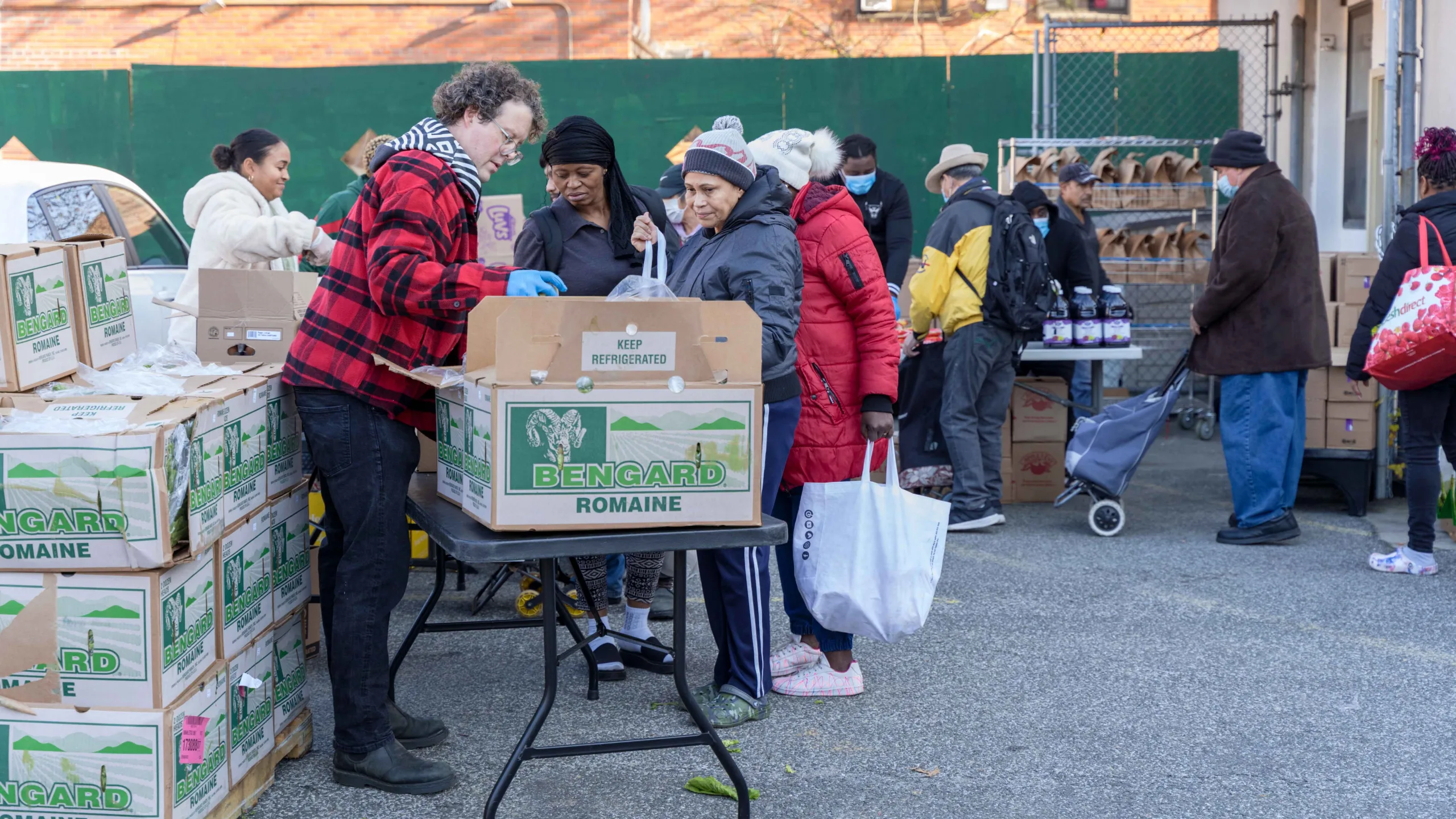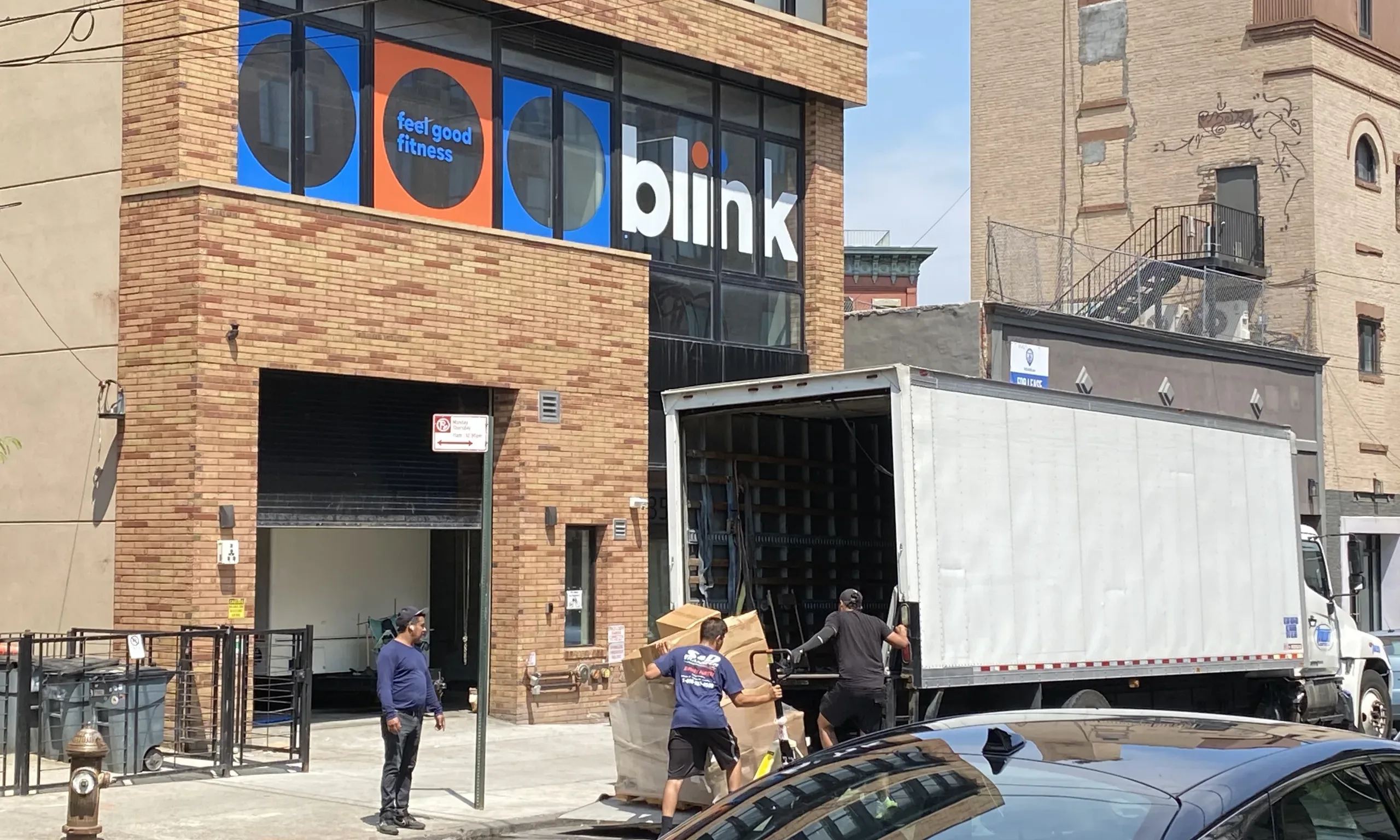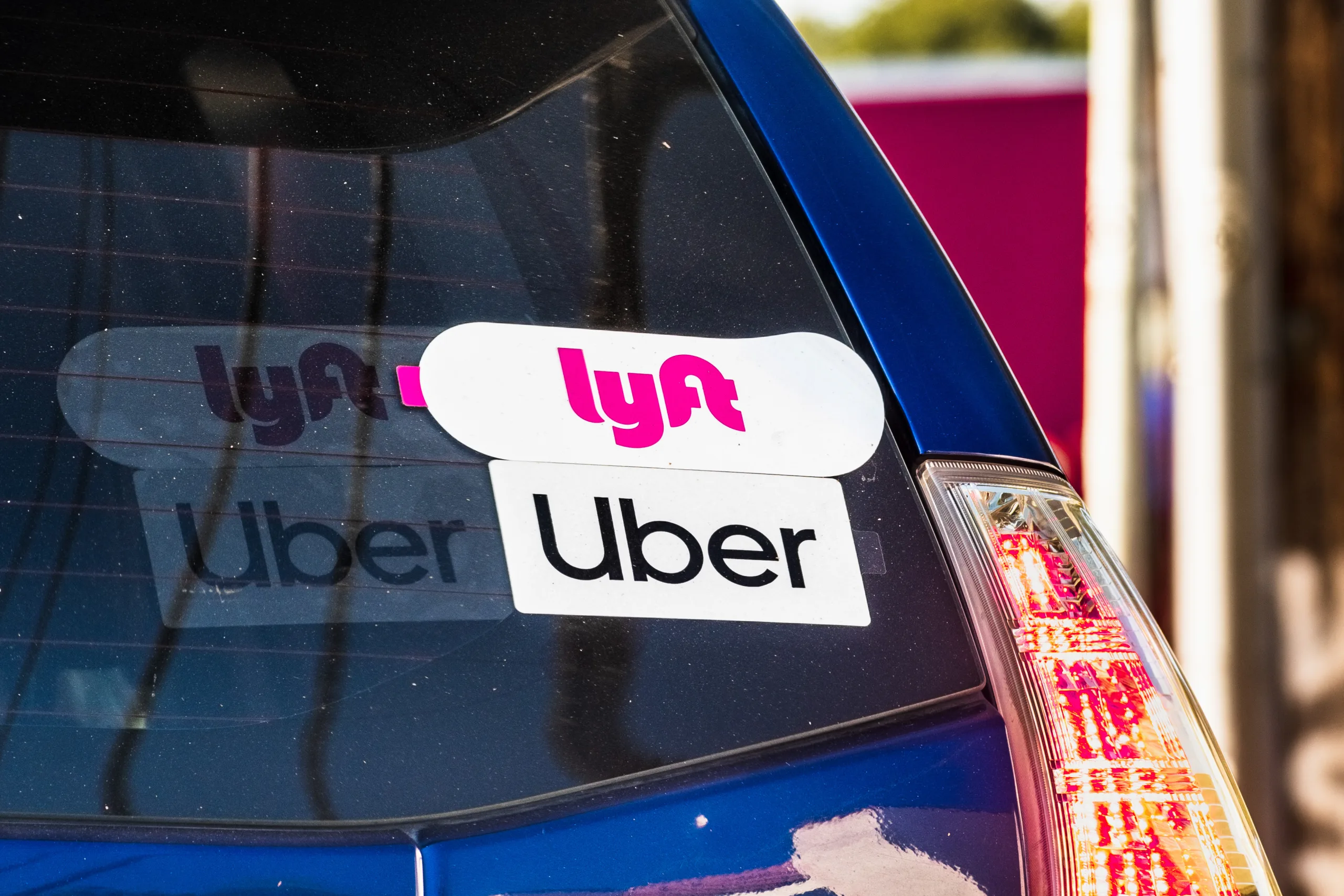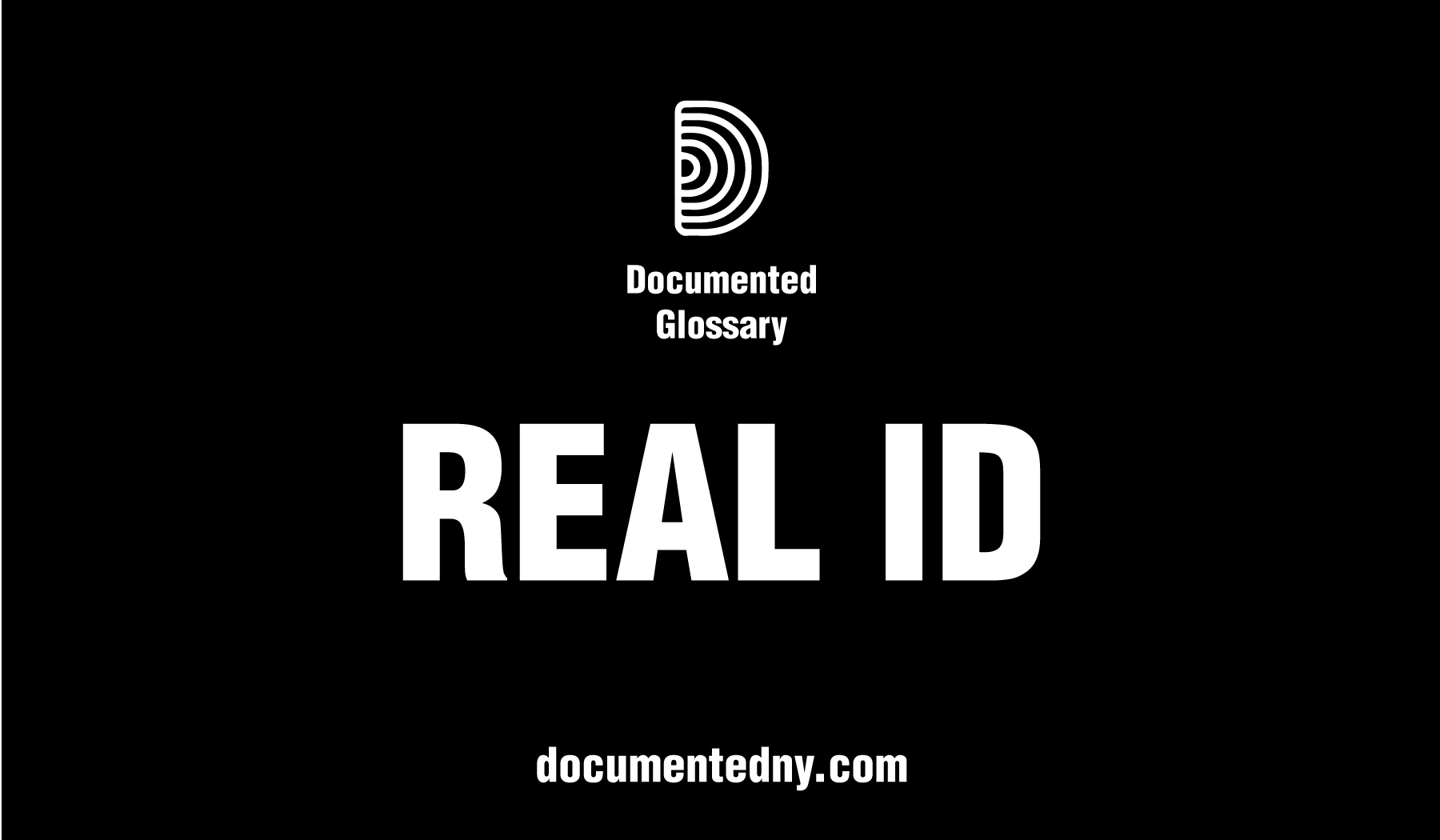When Haiyan Chen brought home bags of food from Costco on a sunny June day, her four children were excited to see what their mom would cook for them in the coming week. But soon, the jubilation turned to despair when they realized nearly $4,000 was missing from her government benefits card.
The 44-year-old Sunset Park, Brooklyn resident discovered the missing funds when she checked her Costco receipt, which showed the balance on her Electronic Benefits Transfer (EBT) card was less than $3. “I thought I read it wrong, so I checked my EBT card account immediately,” Chen recalled. She was stunned to find that someone unknown drained her account within 24 hours through two transactions in Los Angeles.
Chen said the stolen money included Supplemental Nutritional Assistance Program (SNAP) and P-EBT benefits, which she relies on to feed her family.
Chen said it normally costs $3,880 to feed her family of six for three months. And given the rise in inflation, the loss of $4000 on her EBT card would force her to make some sacrifices. “Now I have to cut back on the food, no seasonal fruits for kids and less fish,” Chen told Documented, “The fish is so expensive now, we cannot afford it.”
SNAP theft has been on the rise across the country. Government agencies that administer the benefits, including the NYC Human Resources Administration, have been issuing warnings about a scam in which thieves use card-swiping machines to steal EBT card information and drain funds from vulnerable families who count on the benefits to buy food. In a July newsletter, the agency said it had identified 2,297 instances of potential fraud so far this year.
Chen’s case highlights the recent rise of SNAP thefts in the Chinese community in Brooklyn in the past few months. According to Assemblywoman Marcela Mitaynes, who represents Red Hook, Sunset Park and northern Bay Ridge, her office received 8 inquiries of SNAP thefts during July, all of them from Chinese-speaking constituents. Her office first received a SNAP theft report in the beginning of July from Mary Li, a 64-year-old Chinese immigrant who lost $280 on her EBT card.
Li, who lives with several disabilities, got Emergency Assistance with the help of Jenny Zhang, Chief of Staff for Mitaynes, but Li felt angry about what she had to deal with after the SNAP theft. “The unauthorized transactions happened in three different locations in California. Can you imagine someone like me taking a flight to California and spending the money there? It’s not my fault that the benefits got stolen, and it’s unjust to let us suffer from the consequences.” Li told Documented.
EBT cardholders, especially immigrants who have language barriers and difficulties navigating the myriad government agencies that administer benefits, said they feel vulnerable and frustrated that federal regulations make it impossible for them to recover their stolen funds.
Also read: NYC’s Chinese Community Organizes to Hold Chase Bank Accountable for Identity Theft
Zhang told Documented that the victims of food stamp fraud are a mix of seniors and low-income working families, and the losses ranged from $100 to $4,000. She said the number of SNAP theft victims may be underestimated, “I think what we found is a lot of people don’t even report it to us because they feel like there is no point, they are not going to be assisted, they are not going to get money back.”
The HRA newsletter instructed victims of food stamp fraud to contact an EBT Helpline, HRA Fraud Unit and the NYPD Financial Crimes Unit. However, “no agency involved in the SNAP administration process that is committed to making clients whole,” said Zhang.
“Generally, there is a lot of anger, frustration and helplessness surrounding [SNAP thefts],” said Constituent Services Intern Jason Liang, who helped several Chinese seniors with their SNAP theft inquiries at Mitaynes’s office. Liang said the victims felt the government is not taking their cases seriously.
Zhang said most victims found their claim process “becoming a circle.” When they reached out to HRA, they were told to contact the NYS Office of Temporary and Disability Assistance (“OTDA”) to request a fair hearing. But then, they received notices from OTDA saying that a fair hearing cannot be scheduled as requested since it is not within the purview of OTDA, but rather under the jurisdiction of the HRA fraud unit.
Justin Mason, Digital Information Officer at OTDA, told Documented that the USDA prohibits replacing stolen federally-funded SNAP benefits. Even though part of the federal regulations noted that state agencies could replace benefits when food purchased with government benefits was destroyed in a household misfortune, it doesn’t clarify what situations can be qualified as such. However, Washington D.C. decided to reimburse victims using municipal funds when Temporary Assistance for Needy Families benefits thefts happened in their locality.
“OTDA takes seriously any report of benefit theft and continues to work closely with local, state and federal authorities to provide any information they require that will help bring perpetrators to justice,” Mason said in a statement.
OTDA suggests SNAP and P-EBT recipients remain vigilant for this type of theft by reviewing their accounts for suspicious activity, regularly changing their PIN numbers, and closely inspecting all card swiping machines for signs of tampering before using their cards.
HRA, which receives reports of benefit theft directly, didn’t respond to Documented’s repeated requests for comment about the number of SNAP thefts in NYC this year, as well as benefit replacement policies, and how the agency handles the investigations. In its newsletter, the agency pointed out that it is only able to isolate the trend when benefits are being accessed simultaneously both locally and out-of-state, which means it is unable to identify clients who experience food stamp fraud at the local level, as was the case for Haiyan Chen.
NYPD didn’t respond to the questions related to how its Financial Crimes Unit investigates EBT card thefts.
Chen said she called the local police precinct, 311 and the EBT card helpline to get her benefits replaced. “I was told there is nothing they can do about it, and I can just replace a new EBT card and set up a new PIN.”
“Government ignoring this issue is condoning this kind of crime,” said Li, “The government should focus on cracking down the crimes. It’s no use for us to replace cards because it will keep happening if you don’t solve this problem,” said Li.
“I feel like we are kicked around by different agencies,” said Li. She told Documented that she had to wait for two weeks for the next payment after her benefits got stolen.
Li said she had to buy inexpensive food to cut her budget. “My neighbor warned me the fish heads I bought smell bad, but what can I do?” said Li.
She said it’s tough for her to contact agencies, including the EBT helpline and HRA because she is not comfortable with speaking English and she has impaired vision. “The waiting time to reach an actual person is long, and when they asked me my card number, I cannot read it because my vision is poor,” added Li.
TestPost3
Also read: Excluded Workers Fund Hit With Debit Card Thefts
Conduent, which delivers EBT card payments, didn’t directly answer the question regarding how to improve the security of EBT card funds. “We work on behalf of our client, the NY OTDA, to ensure that the security and fraud prevention awareness information and guidance they have developed to help protect cardholders complies with all applicable regulations, and is available in multiple languages,” said Sharon Lakes, a spokesperson at Conduent.
Assemblymember Mitaynes is urging state and city agencies to step in and work with the impacted families to mitigate food stamp fraud and prevent it from happening in the future.
“For many working-class, immigrant households who continue to struggle with food insecurity during the pandemic and inflation, the SNAP has served as a critical lifeline ensuring that healthy grocery options are made affordable and accessible to all,” she said in a statement.
